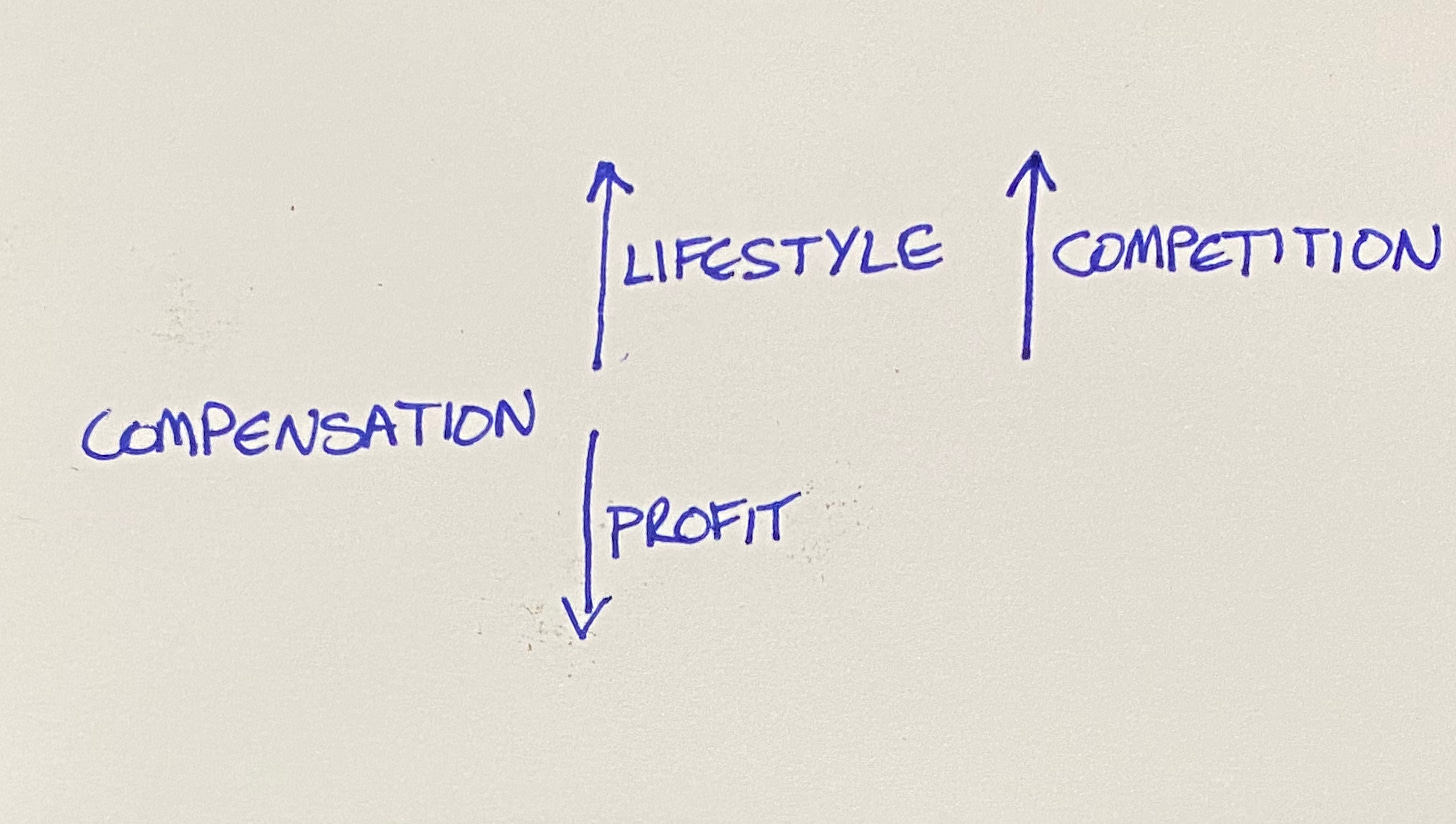I’m your employer. If you live somewhere it costs you $1,000/month to live, then I should pay you less than if you live somewhere it costs you $10,000/month to live. Makes sense, right? I don’t think so.
We are seeing an interesting balance of power play out as more work goes remote. Should you as an employee be paid less if you live somewhere with a lower cost of living? Should you as an employee be paid the same regardless of your living costs? I can see how the norms of our industry could tip either way, but I’m going to make the case here that geographic compensation will lose in the end.
Thought experiment: I am happily paying you $10K/month to make me $30K/month. You secretly move from San Francisco to <pick your favorite low-cost location>. The next month I happily pay you $10K. And the next. And then, horrors, you forget to change your Zoom background & I see low-cost landscape behind you.
I’m furious. I’ve been paying you $10K every month when the policy states I should only be paying you $5K. You’re FIRED!
Really? I don’t think so. As a heartless capitalist, I’m delighted that you’re still making me $20K every month. I don’t want that to end. If I could pay you $5K and get $25K in profit I’d do it, sure. But why do I care?
Monopsony
A monopoly is where the sole seller of an item can charge higher prices than they would charge if there were other sellers. A monopsony is the opposite—the sole buyer of an item can offer lower prices than they would offer were there competitors.
Companies enforcing geographic compensation are acting like monopsonists. You move from SF to <low-cost location>. You have no choice but to retain your employer, so they can dictate your new salary. They want to pay you enough that you can work distraction-free, but not a cent more.
Friction
If you were a day laborer, with a new employer every morning, then you are going to work for the employer paying the most. Our work as programmers is not like that. Experience with the team matters. Experience with the technology matters. Experience with the domain matters. Switching employers is painful. Our employment is stickier than day labor.
We can describe this the other way around, though. An employee with experience is more valuable than the same employee without experience. We would expect to see compensation increase over time, as indeed it does. (There’s more to say about why switching employers gets you a bigger raise than sticking with one, but another day.)
Balance
What tips the balance for me is that even if your current employer acts like a monopsonist, I expect other employers will act like rational capitalists in an open market. If they can hire someone at a profitable rate, they will do so. Employment is sticky, but not so sticky that employees’ll live a worse life on purpose.
Conclusion
If you are an employer, get ahead of the curve and pay profitable (for you) compensation regardless of location or cost of living. Actively recruit from those trying to economize.
If you are an employee, sell your profitable services at the highest price the market can bear. Where you live & how you live are none of your employer’s concern. Temper this advice by also weighing the quality of your team, you alignment to the mission of the company, the chance to exercise (or gain) domain expertise. A career is not just about money, but it is also about money.




